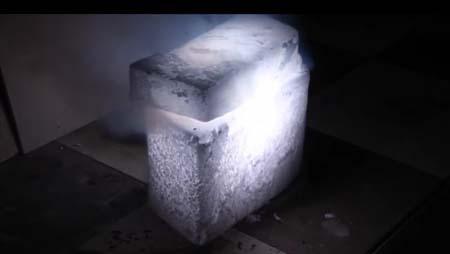Summary of "burning"
(1) The conditions of "combustion": the temperature reaches the ignition point; there are auxiliary combustion agents (mostly oxidants in the reaction)
(2) In which gases can magnesium be burned? (The conditions in the following reaction equation are "ignited")
1. Magnesium burning in air (oxygen): 2mg +o2 ==2mgo Phenomenon: produces white smoke and emits a dazzling glare.
2. Magnesium burning in chlorine gas: mg +cl2==mgcl2 Phenomenon: produces white smoke.
3. Magnesium burning in nitrogen: 3 mg + n2 = = mg3n2 Phenomenon: produces grayish yellow smoke.
4. Magnesium burning in co2: 2 mg + co2 = = 2 mgo + c Phenomenon: produces white smoke, there is a little black substance on the bottle wall.

Magnesium is burned in dry ice
Magnesium burns in the air
(3) Flame color summary:
Contrast of the combustion of methane, ethylene, acetylene
The combustion of hydrogen
The burning of sulfur in oxygen
The burning of co
Hydrogen burning in chlorine (pale flames are not easy to observe)
substance
Flame color
h2 burns in air
Light blue
c2h5oh burns in air
ch4 burns in the air
s burn in the air
c2h4 burns in air
Bright flame black smoke
s Burn in pure oxygen
Bright blue-purple
c2h2 burns in air
Bright flame thick black smoke
Co burns in the air
blue
H2s burn in the air
h2 is burned in cl2
Pale
In addition: the flame color of substances containing sodium elements is yellow; the flame color of substances containing potassium elements is purple (through blue cobalt glass sheets)
Flame color reaction of potassium
Burning of sodium
Iron burns in chlorine